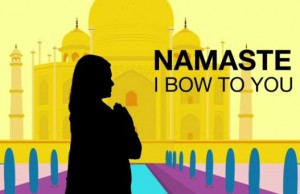Maybe you will notice that we have a new editor on the show. Laura has left the Sunshine Coast, Australia, to come and take on a year here at RheinAhrCampus in Germany. We all think she is crazy to give up all that beautiful sunshine but are so happy to have her on our team. Thanks a lot to Younes Jaber who has helped us produce so many good shows in the past and is now about to finish his studies. Continue reading “Absolutely Intercultural 187 +++ Cultural Comparison +++ Learning German +++ Australian Culture”
Tag: iphone
absolutely intercultural 126 +++ small talk +++ Frendo +++ Korea +++ respect +++ apps +++
 Happy New Year or should that be Appy New Year from Absolutely Intercultural, the podcast about all things intercultural? My name’s Anne Fox and this podcast is coming to you from Denmark. This is show number 126, the first one of 2011 or 20 11 as I should probably start to call it. So why Appy New Year? Well in this show I will be introducing you to 3 so-called apps which could help you in your efforts to understand more about intercultural communication.
Happy New Year or should that be Appy New Year from Absolutely Intercultural, the podcast about all things intercultural? My name’s Anne Fox and this podcast is coming to you from Denmark. This is show number 126, the first one of 2011 or 20 11 as I should probably start to call it. So why Appy New Year? Well in this show I will be introducing you to 3 so-called apps which could help you in your efforts to understand more about intercultural communication.
This is the first time I’m making a show after learning about our win in the European podcast awards for 2010. We won in the non-profit category and I just want to add my thanks to all those of you who voted for us and also to all those of you who have contributed to the show by speaking with me and Laurent over the years. Without you as our conversation partners this podcast would be impossible.
absolutely trivial
The topic of small talk is often part of a language course, though not a very important one. But when I talked to Evan Frendo in Germany I discovered that small talk is actually a very important building block of working relationships. Here are links to Evan’s blog and his latest book, Intercultural Business English for German learners of English working in Asia.
absolutely useful?
You may remember that in my last show we found out about South Korea from a Chinese perspective when I spoke with Carol who is doing a year’s study exchange there. What also interested me was how she was going to use Korean when she went back to China. So is Korean absolutely useful to Chinese people? Thanks again to Carol who got in touch with us to tell us about her Korean experiences. She certainly showed herself to be adaptable when faced with a sensitive intercultural situation.
absolutely adaptable
And adaptability is something which Kenyan teacher, Samuel Osamba still needs to practice even though he has been in the USA for over 20 years now. Let’s hear how absolutely adaptable he needs to be in the classroom.
absolutely word for word
I think that culture and language are closely connected which is why we often also talk about language learning on this podcast. As a teacher I am very impressed with the web site called Listen and Write in which language learners can do dictation exercises around short audio snippets often from YouTube videos or Voice of America broadcasts. Since we sometimes get asked for transcripts of the show I wondered if we could combine the two and upload short extracts from the show to Listen & Write for you to work with if you are a language learner. So the first one features the first part of Evan Frendo’s segment about small talk.
absolutely essential
But am I right in thinking that culture and language are inextricably mixed? I have recently read a blog post by a respected English teacher who said that he didn’t see any reason to include intercultural communication in his English classes. Since Evan Frendo includes a great deal of intercultural communication in his classes I asked him for his view. Is it absolutely essential in language teaching?
appsolutely mobile
After speaking with Evan I signed up to his Twitter feed and discovered a link he had posted about a language app. Apps are small programs that you can download to your mobile phone, tablet or mp3 player. There are thousands of them and I suddenly became curious whether there were any to do with intercultural communication. So in this final segment we’ll go appsolutely mobile (and I hope you heard my pronunciation there!)
So the first app is called Word Lens and works by translating any sign that you photograph. At the moment the only language pair available is English and Spanish so this means that you can photograph a Spanish sign and get an English translation or vice versa. Useful for restaurant menus I would imagine. The catch here though is that although the app is free, you have to buy the dictionary. But when it works, it’s like magic.
The second app I found was called Fasten Seatbelts and this gives you snippets of information about different cultures both in text format and in the form of short videos. Now this one is completely free. The first edition was a collection of Do’s and Don’ts for European countries and the second edition now covers a range of Asian countries.
The third app I found is called Cultural GPS and allows you to see the different Hofstede profiles for 98 different countries in the free version. In the pro version you can create your own personal cultural profile and compare it to any one of the 98 countries or compare pairs of countries to highlight differences and similarities. This is the one I liked the most and I’d be really interested to find out what you think about it.
All in all I think that this was an interesting little project but I have come to the conclusion that these apps can only help with simplistic culture specifics and don’t really help with the more rewarding culture-general aspects of intercultural communication. But maybe you know of other interesting apps? If so then do tell us about it in a comment here on the blog or send us an email. We’d also be very happy if you recorded something for us to include in the show. Well that’s it for this show.
Our next show will be coming to you from Dr. Laurent Borgmann in Germany on 21st January.
So long … stay tuned!
The host of this show is Anne Fox : Editor: Dino Nogarole

